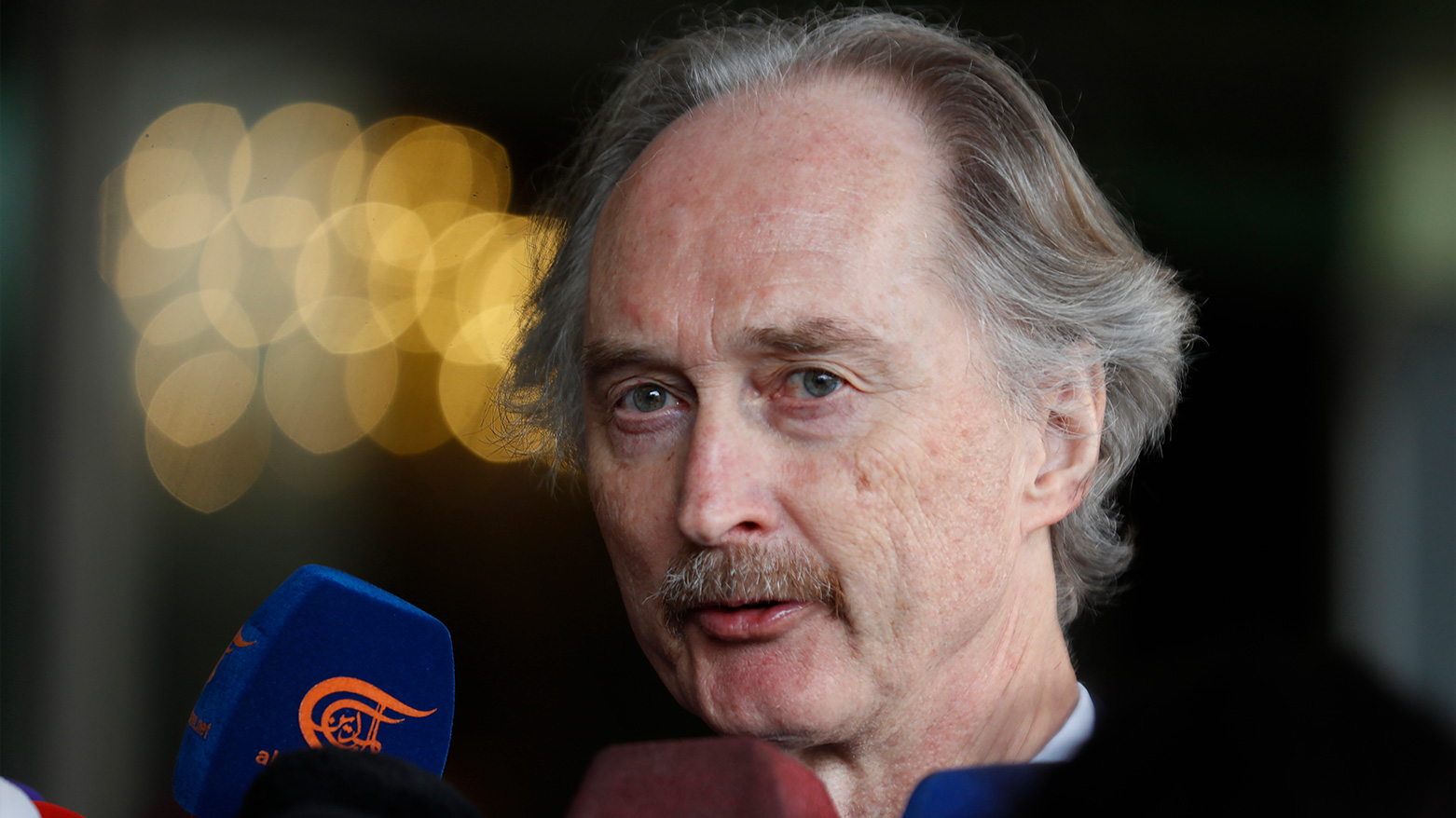Pedersen: Dialogue with Kurds Key to Syria’s Peace
“The results of the dialogue between Syrian authorities and Kurds are positive and encouraging,” Pedersen noted, adding that the United Nations remains committed to facilitating a successful Syrian-Syrian dialogue.

By Kamaran Aziz
ERBIL (Kurdistan24) – In a statement that could reshape the contours of post-war Syria, United Nations Special Envoy for Syrian Affairs Geir Pedersen on Friday called for the full integration of northeastern Syria with the rest of the country, describing it as a pivotal step toward national stability and reconciliation. His remarks, delivered during a session of the United Nations Security Council, outlined a comprehensive vision for resolving Syria’s multifaceted crises, from economic collapse and territorial fragmentation to unresolved coastal atrocities.
Pedersen emphasized that Syria’s worsening economic conditions demand immediate international attention and urged the lifting of sanctions imposed on the country, which have compounded an already dire humanitarian situation. “The economic situation in Syria is very poor,” he said, noting that alleviating the suffering of ordinary Syrians must be a top priority for the international community.
One of the most significant elements of Pedersen’s address was his assessment of the ongoing talks between the Syrian regime and Kurdish representatives in northeastern Syria. “The results of the dialogue between Syrian authorities and Kurds are positive and encouraging,” Pedersen noted, adding that the United Nations remains committed to facilitating a successful Syrian-Syrian dialogue. He framed the integration of northeastern Syria—not only politically, but also economically and administratively—as a cornerstone for national unity and future peacebuilding efforts.
In a rare and pointed critique, the UN envoy also addressed Israel’s continued military actions inside Syria, characterizing them as violations that undermine Syria’s sovereignty and obstruct the transitional process. “Israel must respect Syria’s territorial integrity, independence, and sovereignty,” he stated. These remarks come at a time of heightened regional tensions and reflect growing frustration within the United Nations over the lack of accountability for repeated cross-border strikes.
Pedersen further called on the Syrian government to release the findings of investigations into the mass killings on the western coast, which occurred in early March and left over 1,700 people dead, many of them Alawites. He demanded accountability for those responsible, underscoring the importance of justice as a prerequisite for reconciliation and sustainable peace.
The envoy’s address marks a pivotal moment in the international community’s approach to Syria. After more than a decade of devastating conflict, the country remains carved into zones of control, with large areas—including northeastern Syria—functioning under autonomous governance led by Kurdish authorities. Pedersen’s endorsement of a structured integration process signals a potential turning point in Syria’s stalled political roadmap, amid growing recognition that long-term peace requires inclusive governance and local representation.
As diplomatic momentum slowly gathers around renewed negotiations, Pedersen reiterated the United Nations’ readiness to support and facilitate an intra-Syrian political process that reflects the aspirations of all Syrians, regardless of ethnicity, affiliation, or geography. “We will continue to assist Syrians in making the Syrian-Syrian dialogue successful,” he concluded.
With Syria’s future still deeply uncertain, the UN envoy’s call for integration, economic relief, and respect for sovereignty underscores the urgent need for a unified, multi-stakeholder effort to rebuild a nation fractured by war and disillusionment.